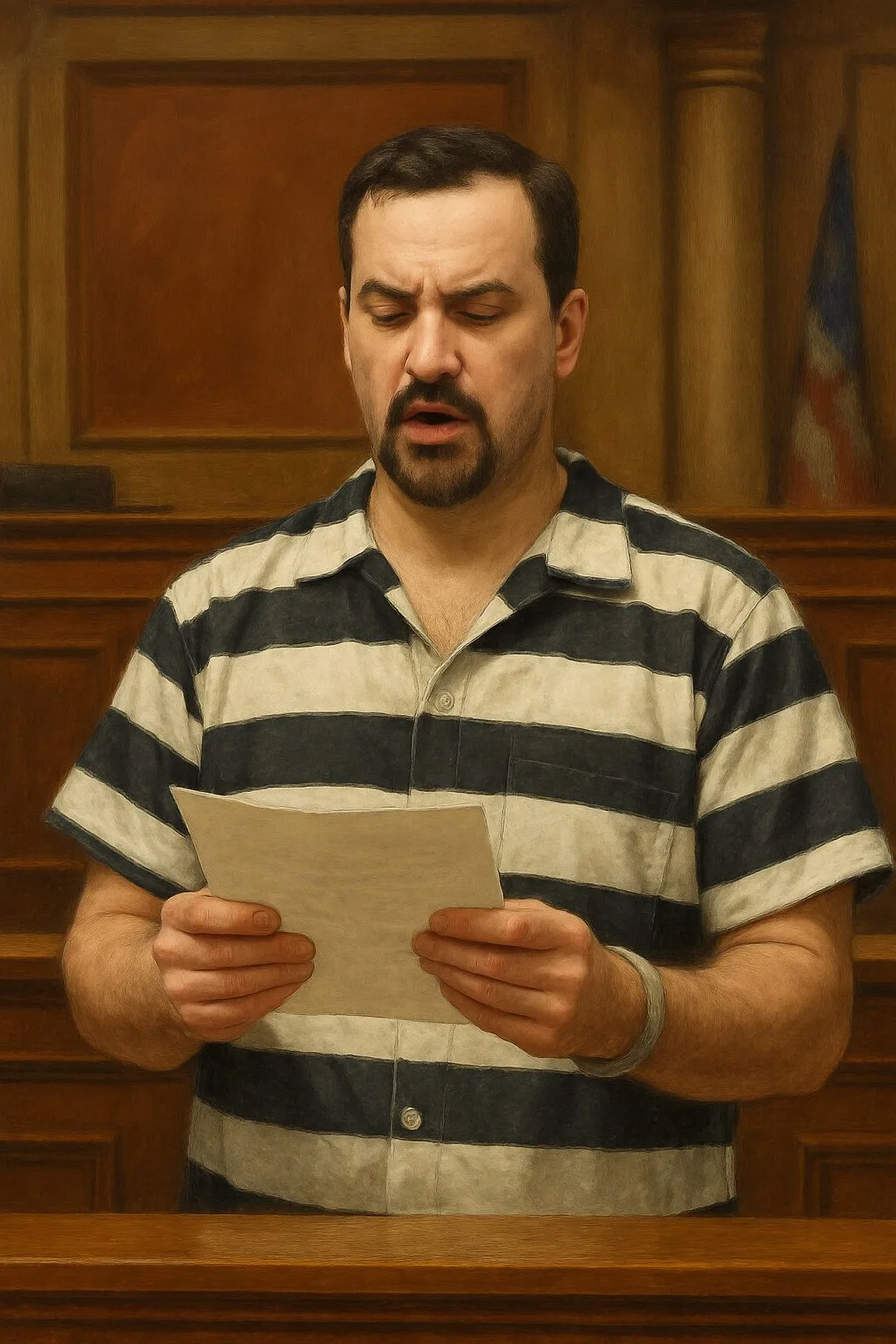PLEASE NOTE: The criminal cases and allegations against Vincent Sarikey are completely unrelated to the Wenke case. I’m currently in the process of setting up a separate website for cases unrelated to Wenke.
In 2023, Vincent Sarikey pleaded guilty in Virginia’s Eastern District to a federal charge for sexually exploiting a child. As he awaited sentencing, he wrote the following letter pleading with the judge for leniency.
In what arguably amounts to little more than a standard-issue mea culpa that reads like a scripted attempt to feign remorse, Sarikey admits that he coerced a 15-year-old victim into sending him explicit photos and videos. He also admits to attempting to coerce a 12-year-old victim into sending similar illegal material.
Sarikey does not, however, acknowledge the shockingly high number (hundreds) of other alleged victims the FBI identified in his disgustingly huge CSAM (child sex abuse material, also commonly known as “child pornography”) collection or the more than two dozen victims who filed for restitution (and were later granted payments totalling $193,000). Sarikey also fails to mention the minor victim he was accused of actually molesting back in 2009, which investigators found evidence of while combing through devices that were seized from his residence.
In the letter, Sarikey claims that he feels terrible for taking advantage of the vulnerable mental state of minors who “most likely did not have a positive life.” Furthermore, he acknowledges that his actions could “further push” his victims “into future depravity or make them think this is how the world works.” Sarikey also demonstrates an awareness that his actions were illegal and that by sharing CSAM, he caused the revictimisation of the juveniles he harmed.
Throughout the letter, Sarikey describes experiencing a process of self-reflection during the months he spent in jail following his arrest. In the final paragraph, he states that he knows he’ll “never be involved” in CSAM (child pornography) again and vows to never harm another child in the future.
My Take: Vincent Sarikey is only sorry he got caught.
In his letter to the court, Sarikey acts as if he experienced an epiphany and started to understand the wrongfulness of his crimes while in county lock-up pending the outcome of his case. But court documents, including transcripts of his online conversations with fellow pedophiles, prove that he knew he was breaking the law while he was actively exploiting children.
Furthermore, while Sarikey repeatedly demonstrated a lack of empathy (or a conscience in general) during these conversations, his attorney claimed that he tried to rationalise behaviours that he knew were wrong — before the raid on his home or his subsequent arrest.
As a former friend of Sarikey who was unaware of his crimes until after the raid on his home in October of 2022, I recall him telling me that he was plagued by overwhelming guilt over past actions that he refused to go into detail about. This happened on numerous occasions, and his cryptic demeanour contributed to my decision to ultimately end the friendship. While I didn’t realise it at the time, Sarikey was likely demonstrating through his words that he knew his crimes were morally wrong.
In various court documents, which I’ll share at a later time, the prosecution accuses Sarikey of only feeling sorry he got caught, and it’s evident in records that this was likely the case. For example, one memorandum states that Sarikey could have never fathomed that he’d be facing 35 years behind bars. My opinion? He’s so arrogant that he thought he could get away with his crimes but was so incapable of resisting his sickening urges that he knowingly accepted the risk of prison time.
The prosecution also accused Sarikey of being a skilled liar/actor who lived a double life and was good at saying “what he needed to say” to avoid suspicion of his double life. I concur wholeheartedly, and I also agree with the U.S. government’s apparent belief that Sarikey’s friends and family knowingly continued to enable him after his arrest by supporting and advocating for him in court despite the horrifying nature of his crimes.
My Take: Vincent Sarikey will likely reoffend in the future.
I know from reliable sources that at least one person knew about Vincent Sarikey’s attraction to minors and strongly urged him to get treatment for it — long before his arrest. He refused, at times stating that it was a lost cause and that he didn’t think he could shut off the portion of his brain that causes his illegal desires. Other times, Sarikey would tell the person that he believed he could control his urges while engaging in behaviours that spoke to the contrary, including heavy drinking and suicidal ideation.
Sarikey’s defence attorney expected the court to believe that seven months of sex offender treatment had at least started to rewire the defendant’s brain in promising ways that demonstrated a capacity for change. But I don’t think that’s enough to even begin deprogramming a sex offender from 15-plus years of habitual abuse and exploitation against minors — especially given the blatant remorselessness Sarikey demonstrated in his online chats with other offenders, which I’ll post at a later time. And I certainly harbour no sympathy whatsoever for a predator who whines to the judge overseeing his case about how he’s not cut out for jail/prison when he knowingly did things to put himself there.
USA v. Vincent Sarikey
Letter to the Judge
USA v. Vincent Sarikey – 1:23-cr-00056 – Document #41-3 – Letter
